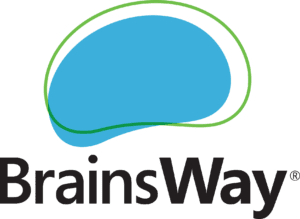Brainsway Ltd. (TASE:BRIN), a leader in the advanced non-invasive treatment of brain disorders, and Cohen Veterans Bioscience, Inc. (CVB), a leading non-profit foundation dedicated to advancing brain disease diagnostic and treatment options for veterans and civilians, today announces the launch of a new research collaboration with the Stanford University School of Medicine to identify potential biomarkers in patients suffering from Post Traumatic Stress Disorder (PTSD).
The newly-launched project is designed as an add-on study involving the collection and analysis of electroencephalogram (EEG) data from patients currently enrolled in Brainsway’s ongoing multicenter PTSD trial evaluating the safety and efficacy of the company’s Deep Transcranial Magnetic Stimulation (dTMS) for the treatment of PTSD. It is anticipated that Brainsway’s collection of the EEG data, which will now be subject to analysis and assessment by Stanford researchers, led by Dr. Amit Etkin, associate professor of psychiatry and behavioral sciences, will lead to the discovery of various unique biomarkers present in specific groups of PTSD patients. This personalized approach could facilitate vastly-improved treatment outcomes, since the identification of individual biomarkers in specific patients may enhance clinicians’ abilities to guide those patients toward those treatment options that are best suited for them, potentially including dTMS.
We are excited to further explore the possibilities of personalized medicine in PTSD treatment overall, and by the particular implications this research could have for Deep TMS as a cutting edge treatment option,” said Yaacov Michlin, Chief Executive Officer of Brainsway. Our ongoing multicenter study in PTSD is indicative of Brainsway’s continued commitment to expanding the boundaries of science in medicine through our patented, non-invasive technology. This add-on collaborative study has the additional benefit in potentially further enhancing our understanding of what treatments are most effective for different PTSD patients and why.”
We are proud to sponsor this collaboration, which we expect will yield critical insights toward developing a precision medicine approach to treat trauma-related brain disorders non-invasively,” said Dr. Allyson Gage, Chief Medical Officer of CVB.
Forward Looking Statements
This press release contains forward-looking statements about the parties’ expectations, beliefs and intentions. These forward-looking statements and their implications are based on the current expectations of the parties only, and are subject to a number of factors and uncertainties that could cause actual results to differ materially from those described in the forward-looking statements. In addition, historical results or conclusions from scientific research and clinical studies do not guarantee that future results would suggest similar conclusions or that historical results referred to herein would be interpreted similarly in light of additional research or otherwise. The following factors, among others, could cause actual results to differ materially from those described in the forward-looking statements: changes in technology and market requirements; delays or obstacles in launching and/or successfully completing ongoing studies; failure to obtain pending approvals from regulatory agencies; inability to retain or attract key employees whose knowledge is essential to the development of products and/or approaches; unforeseen scientific challenges, difficulties and/or adverse events; changes in legislation.
Any forward-looking statement in this press release speaks only as of the date of this press release. The parties undertake no obligation to publicly update or review any forward-looking statement, whether as a result of new information, future developments or otherwise, except as may be required by any applicable securities laws. More detailed information about the risks and uncertainties affecting each party may be obtained from their websites and periodic filings.
















